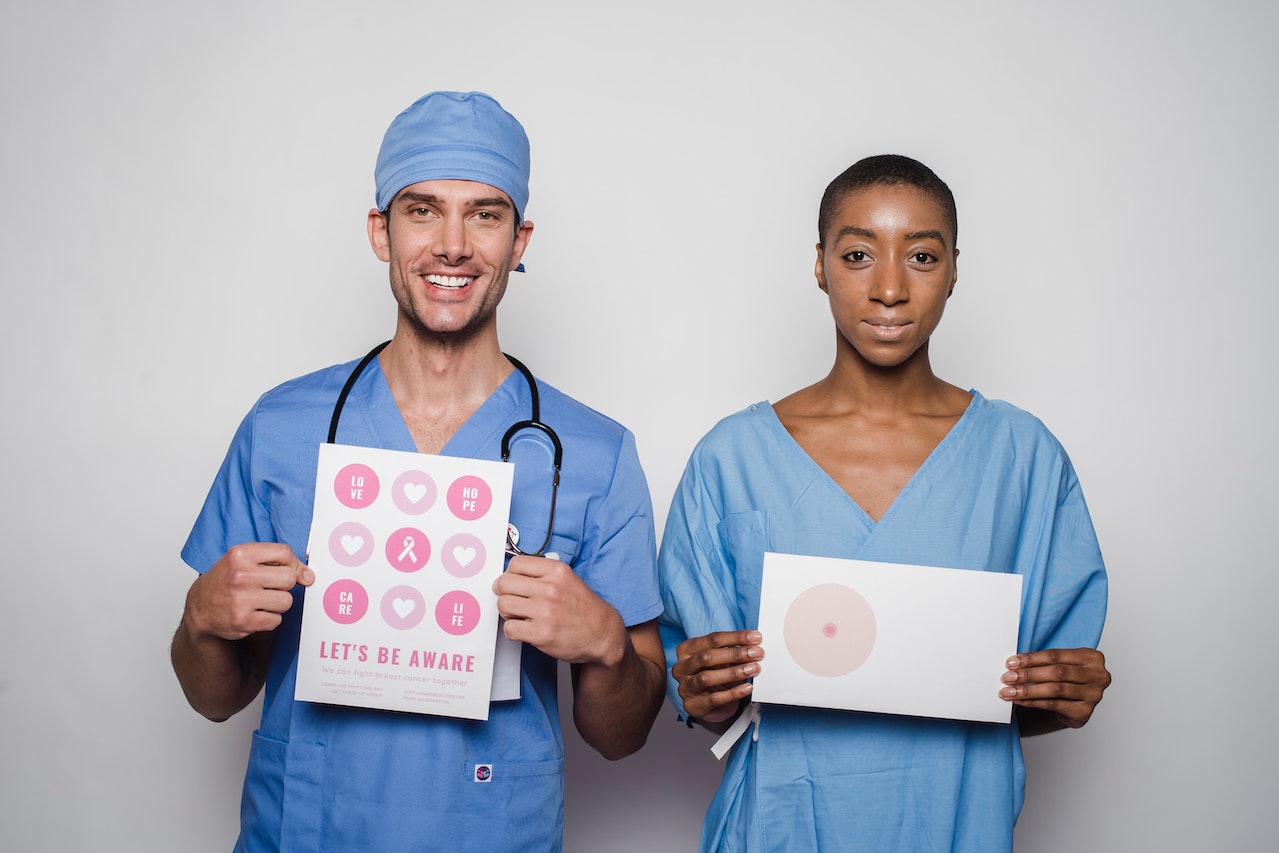Here at Montes Medical Group, we are committed to offering quality health services that help women and their children feel secure and cared for. Annual well women’s exams are important for identifying potential health issues that are yet to present major symptoms. Along with discussing any concerns, our team also examines your medical history and performs a physical examination of body weight, blood pressure, heart activity, breasts, and other health factors.
With National Breast Cancer Awareness Month taking place in October, we wanted to share valuable information about this disease. Women can learn how to check themselves for breast cancer and better understand the general signs and symptoms of this type of cancer. Early recognition can make it more likely to stop cancer from spreading and boost survival rates, which makes awareness so much more important.
Keep reading to learn about this cancer, including risk factors and signs that breast cancer may have already developed.
Understanding Breast Cancer
Globally, breast cancer is one of the most common forms of cancer among women that also impacts many men. Millions of new cases of breast cancer arise every year and there are millions of survivors that are still being treated or have recently finished treatment. National Breast Cancer Awareness Month takes place in October of every year to keep the fight against this disease alive. People, organizations, and communities around the world unite to boost education, support, and empowerment for those impacted by breast cancer.
Although we haven’t been able to cure breast cancer completely, this disease has been weakened thanks to awareness efforts, early detection, and incredible scientific research. Thankfully, state-of-the-art treatment options and less extensive surgery are producing better outcomes for the people who are diagnosed with this cancer.
Early Detection & Education
Early detection is one of the most effective tools in the fight against breast cancer. Regular breast self-exams, clinical breast exams, and mammography screenings are essential components of early detection. Awareness campaigns play a key role in teaching people how to perform self-exams and when to get screenings. By educating others about this disease, we can empower them to take control of their health and improve their likelihood of survival if diagnosed.
In fact, as more men and women become vigilant about their health and screening needs, breast cancer cases are getting detected at earlier and more treatable stages. This early detection is coupled with advanced new treatment options, resulting in higher survival rates and patient outcomes.
Signs of Breast Cancer
Everyone should know how their breasts normally look and feel so they can recognize any changes that may take place. In addition to knowing what to look for, it’s essential to get regular mammograms and clinical breast exams that can help detect breast cancer even before any symptoms start to show.
Here are some signs of breast cancer:
- A lump in the underarm (armpit) or breast
- Thickening or swelling in part or all of the breast
- Dimpling or skin irritation of breast skin
- Localized or persistent breast pain
- Redness, scaliness, or thickening of the nipple or breast skin
- Nipple discharge (besides breast milk)
- Changes in the size or shape of the breast
Risk Factors for Breast Cancer
The main risk factors for breast cancer include being a female and aging. In fact, most breast cancers are found in women over the age of 55. Some other uncontrollable factors that can increase risk include family history, race, breast density, and menstrual period history. Lifestyle factors can also impact risk and include factors such as drinking alcohol, being overweight or obese, and diet.
Having one or more risk factors doesn’t mean someone is guaranteed to develop breast cancer. Also, people with no risk factors might still develop this disease. By becoming familiar with all of the risk factors, people can make smart lifestyle decisions that can help lower their risk of getting a breast cancer diagnosis. For example, it can help to stay at a healthy weight, be physically active, and limit or avoid alcohol.
Conclusion
In conclusion, breast cancer awareness is a powerful way to empower individuals and save lives. By promoting early detection, educating our communities, and supporting vital research, we can continue to weaken this disease and get closer to finding a cure. Thankfully our efforts are already making a significant impact in improving survival rates and patient outcomes, helping to build a healthier future for everyone impacted by breast cancer.

